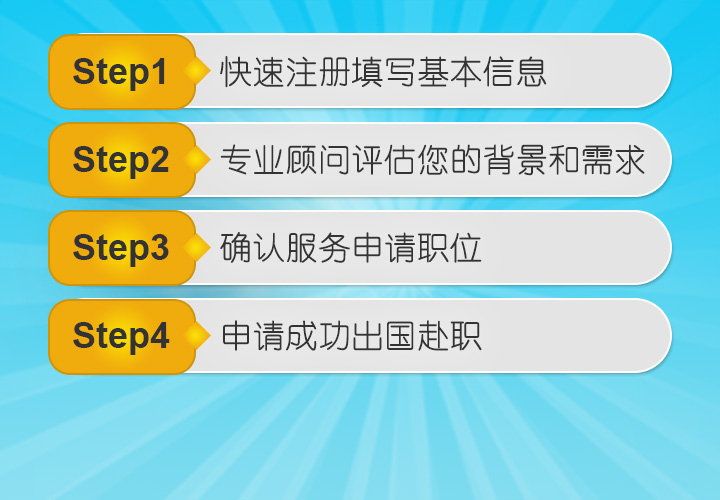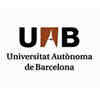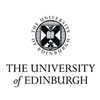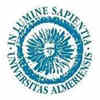瑞典哥德堡大学博士后职位
瑞典哥德堡大学博士后职位
Postdoctoral fellow in translational mucosal biology
We are currently seeking a talented and motivated person for a postdoctoral position in medically orientated mucosal research. The project will explore the development of female reproductive mucosal defence systems during pregnancy, with the goal of understanding how those systems contribute to reproductive health and the prevention of pre-term birth.
The candidate will join a recently established Wallenberg Centre for Molecular and Translational Medicine (WCMTM) at the University of Gothenburg (www.wcmtm.gu.se). As part of this venture, Dr. George Birchenough has recently established his research group (www.birchenoughlab.org) at the Department of Medical Biochemistry & Cell Biology at the University of Gothenburg and is now recruiting postdoctoral researchers and doctoral students. The group works towards a better understanding of how mucosal defence systems control our interactions with the environment, how those systems fail in disease and how they might be prophylactically or therapeutically targeted.
The group is part of a large network of researchers at Gothenburg University, most importantly the Mucin Biology Groups cluster (www.medkem.gu.se/mucinbiology) that currently includes over 30 researchers working at the forefront of mucosal biology. The candidate will have the opportunity to collaborate with experts in multiple experimental methods that work within the cluster, as well as more widely with other local and national groups within the WCMTM network.
Subject area
Translational Mucosal Biology.
Subject area description
Our mucosal surfaces are the interface between the environment and our tissues. Their physiological functions are critical, but necessitate constant exposure of living cells to a vast collection of microbial lifeforms that includes many opportunistic and obligate pathogens. As a result, our mucosa have evolved multiple defensive systems that allow them to endure in this environment, and failure of these systems is often linked to development of acute and chronic disease. Consequently, understanding the development and regulation of these systems is key to understanding the pathoaetiology of mucosal disease and how they can be prevented or treated.
While much research has focused on the gastrointestinal and respiratory mucosal surfaces, the female reproductive system has gained relatively little attention. During pregnancy, the cervical mucosal epithelium undergoes dramatic alterations that include the appearance of large numbers of mucus secreting goblet cells. These cells generate a cervical mucus plug (CMP) that is thought to have an important role in preventing bacterial ascension from the vagina into the uterus during pregnancy. Crucially, both bacterial infection and altered CMP properties have been linked to the induction of pre-term birth, which is the largest single cause of neonatal mortality and results in approximately one million deaths per year worldwide.
By combining data from pre-clinical mouse models with analysis of samples from non-pregnant and pregnant humans, we hope to develop a better understanding of the mechanics of cervical goblet cell differentiation, CMP formation and the specific defensive roles of CMP proteins. This will in turn be used to determine how cervical defences might be augmented in order to prevent pre-term birth in humans.
Job assignments
The successful candidate will be expected to work extensively with pre-clinical mouse models in order to establish how cervical mucosal defences develop during pregnancy, and develop data that identifies their cellular and molecular basis. The candidate will be encouraged and expected to conduct their experimental research in an independent manner and to make significant contributions to project planning. The candidate will also actively contribute to the local research environment at the Mucin Biology Groups and engage in interactions with collaborators and other groups belonging to the WCMTM network. If necessary, the candidate may also be asked to assist in the supervision of Masters or PhD students.
Eligibility
An achieved doctoral degree is compulsory for a position as postdoctor at Göteborg University. The doctoral thesis shall be in a relevant area according to the specific position stated here. Since a position as postdoctor aims to give new holders of the doctorate the opportunity mainly to strengthen and develop their scholarly proficiency, we aim for those who have a doctoral degree not older than 3 years counting from last date of application.
The qualifications for academic positions are given in Chapter 4, Section 3 – 4 of the Higher Education Ordinance.
Assessment
Applications will be judged primarily on evidence of relevant scientific skills. The applicant must provide evidence of a PhD in a relevant area of research and have demonstrable skills in both written and spoken English. Previous experience working with animal models is essential. Expertise in microscopy, mass spectrometry, organoid culture, flow cytometry, microbiology, bioinformatics or in vivo disease modelling will be considered as strong merits in support of an application. Eligible applicants will be asked to partake in an interview and present their previous research. Great emphasis will be placed on the candidate’s personal suitability for the position and clear interest in the subject area.
Regulations for the evaluation of qualifications for academic positions are given in Chapter 4, Section 3 – 4 of the Higher Education Ordinance.
Employment
The employment is full time and temporary, two years, with placement at the Institute of Biomedicine. First day of employment as agreed.
For further information:
Please contact George Birchenough: email – george.birchenough@gu.se; telephone – +46(0)317863046
Unions
Union representatives at the University of Gothenburg: http://www.gu.se/english/about_the_university/job-opportunities/union-representatives
How to apply
In order to apply for a position at the University of Gothenburg, you have to register an account in our online recruitment system. It is the responsibility of the applicant to ensure that the application is complete in accordance with the instructions in the job advertisement, and that it is submitted before the deadline. The selection of candidates is made on the basis of the qualifications registered in the application.
The application should contain:
•A cover letter giving a brief description of previous research experience, and a motivation to why you are applying
•A CV including a list of publications
•Proof of completed PhD
•Contact details of two references
The University of Gothenburg promotes equal opportunities, equality and diversity.
Salary is determined on an individual basis.
Applications will be destroyed or returned (upon request) two years after the decision of employment has become final. Applications from the employed and from those who appeal the decision will not be returned.

















